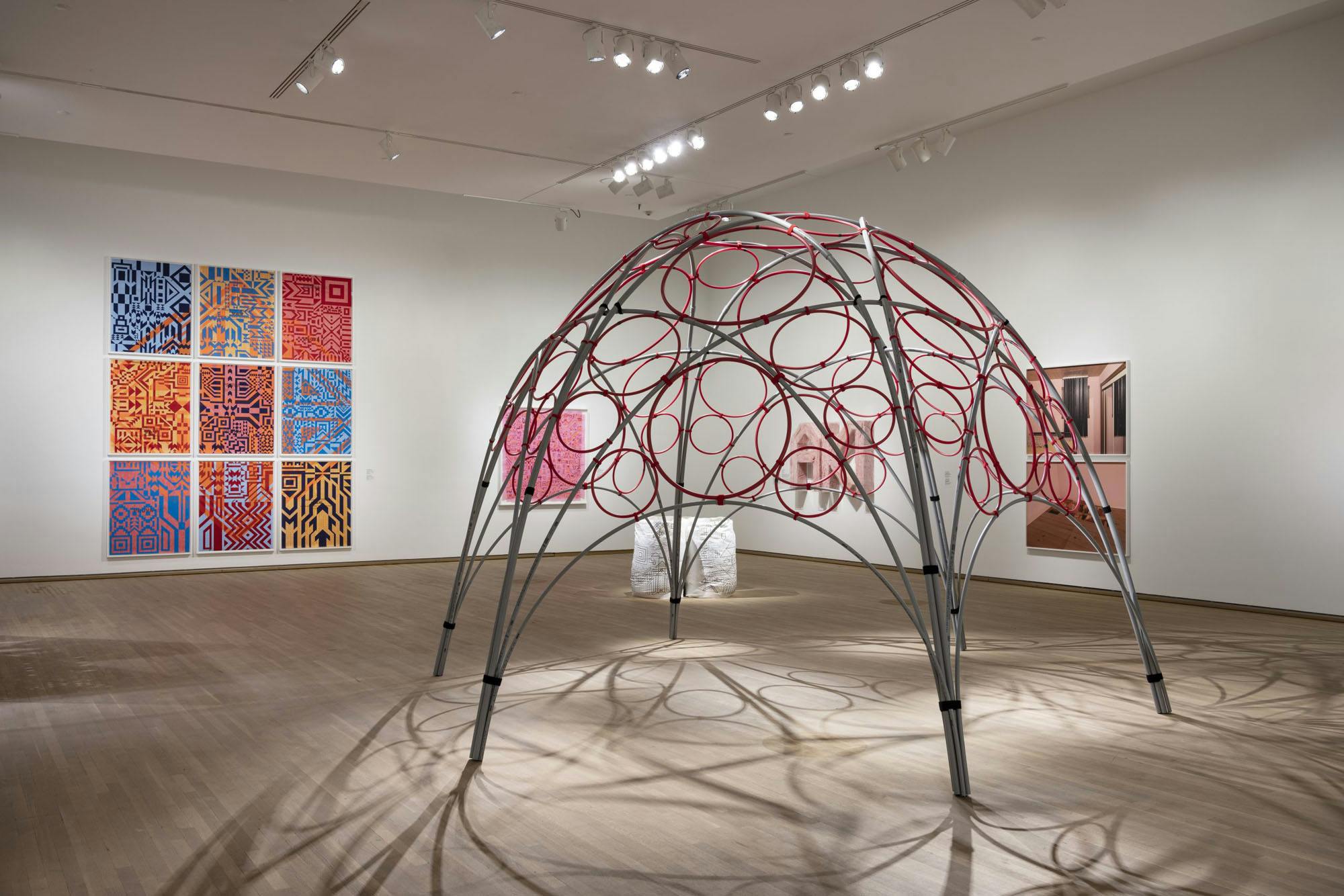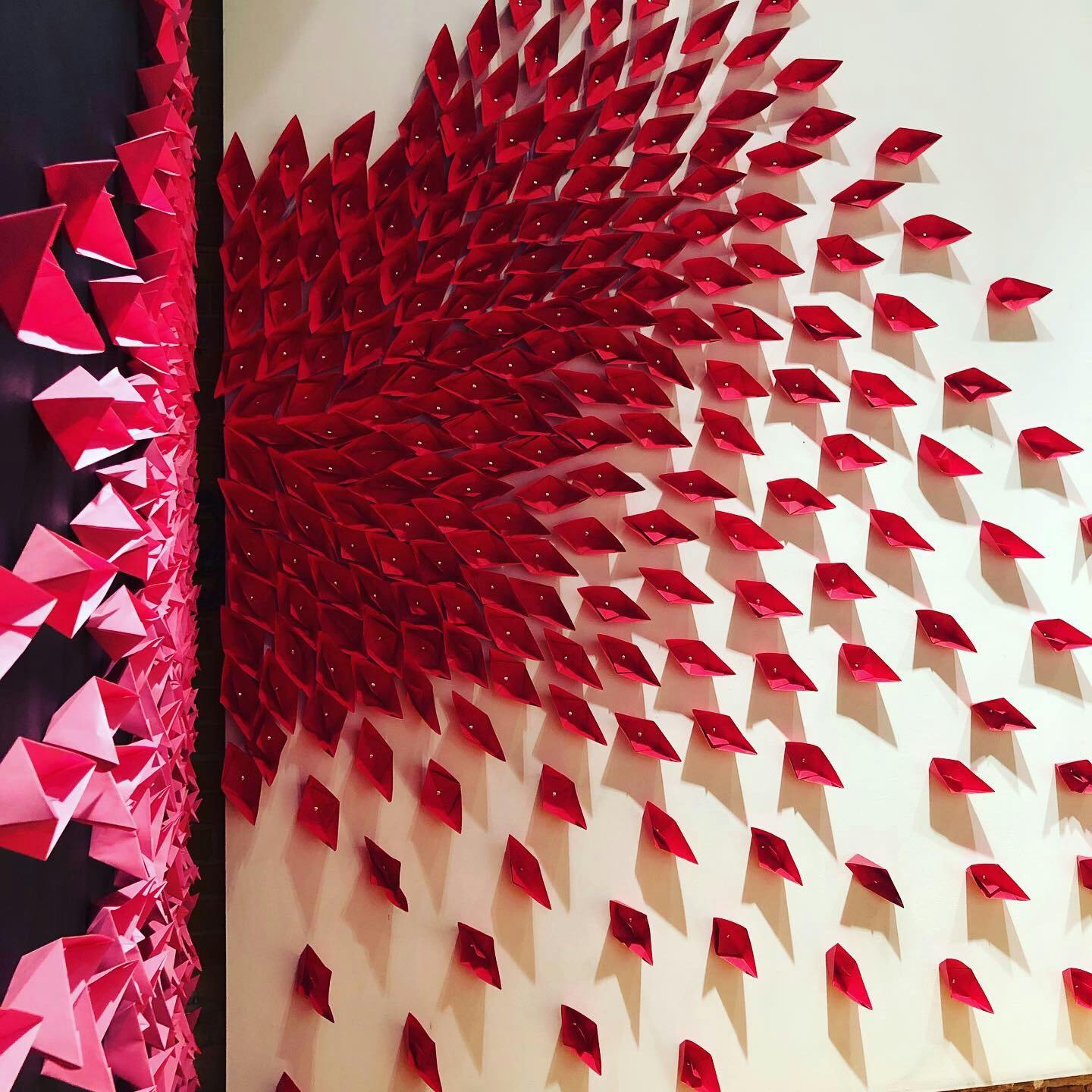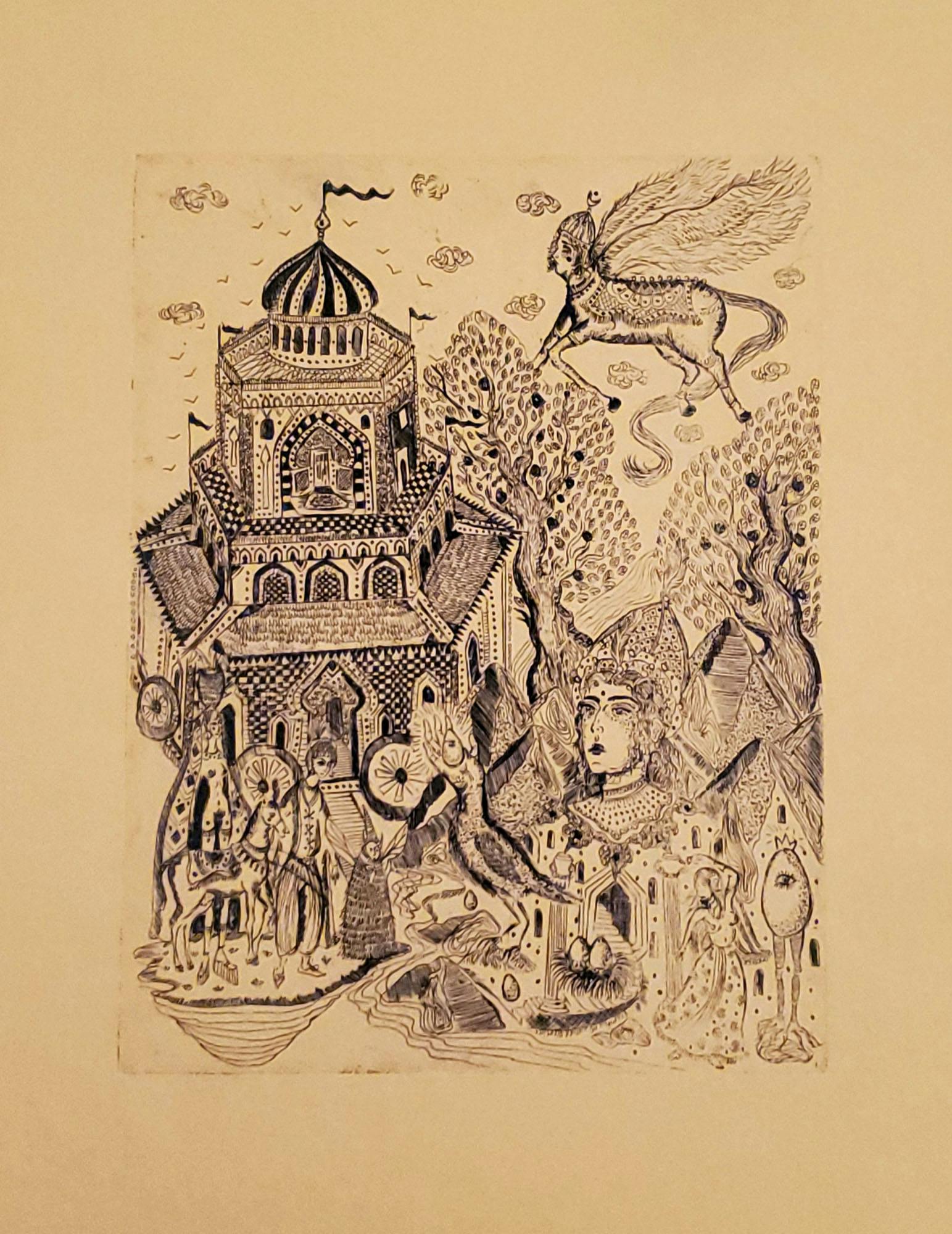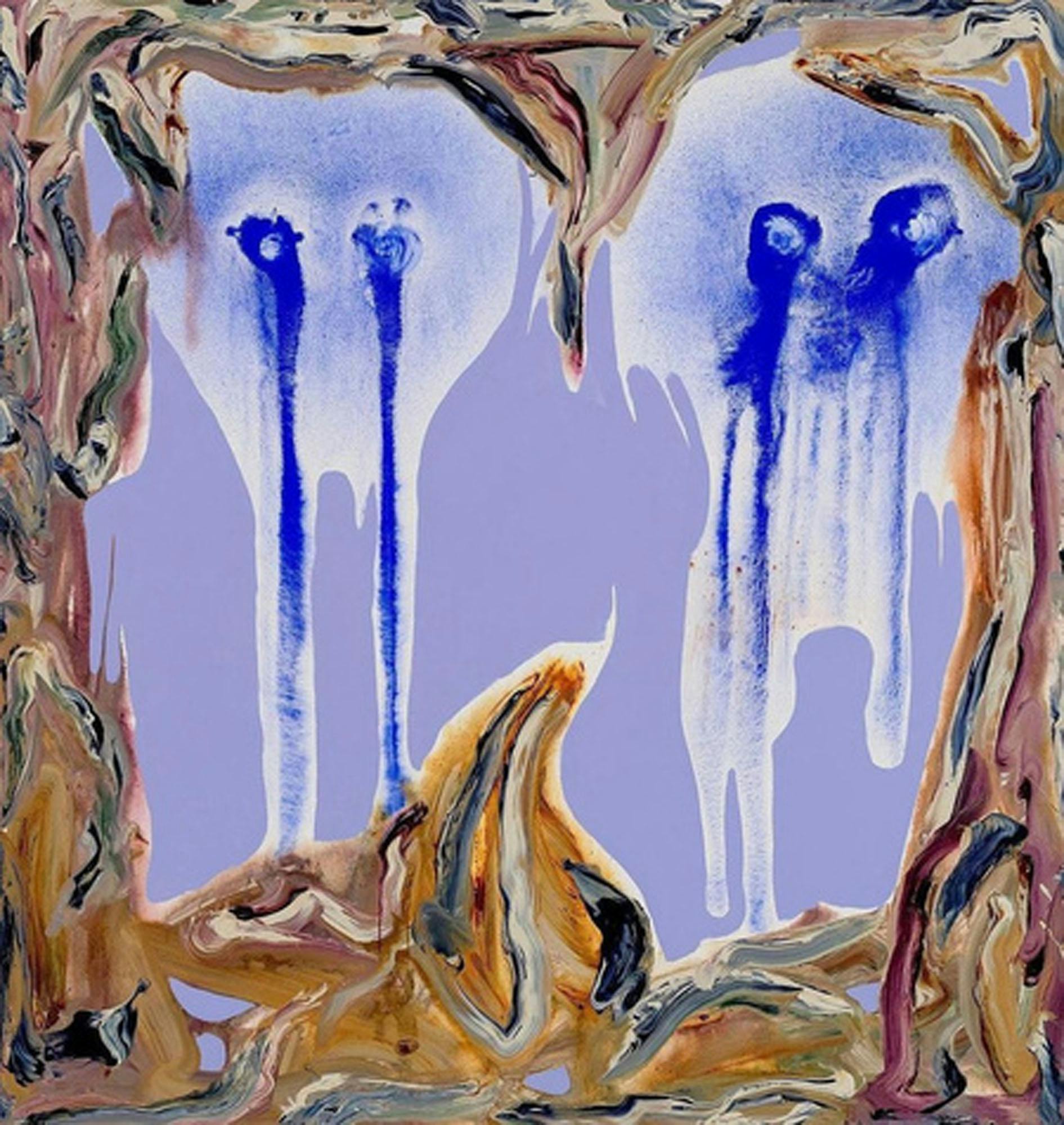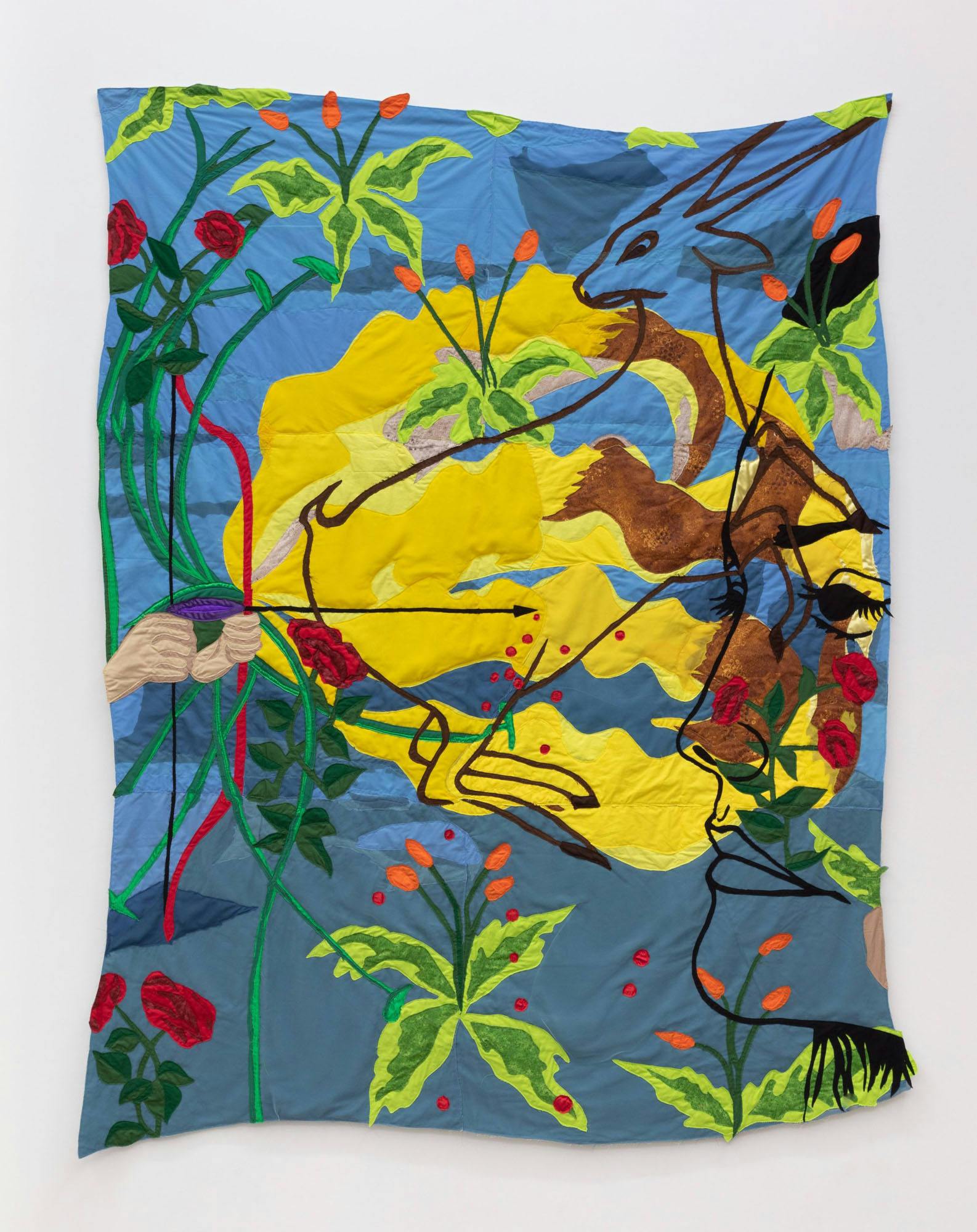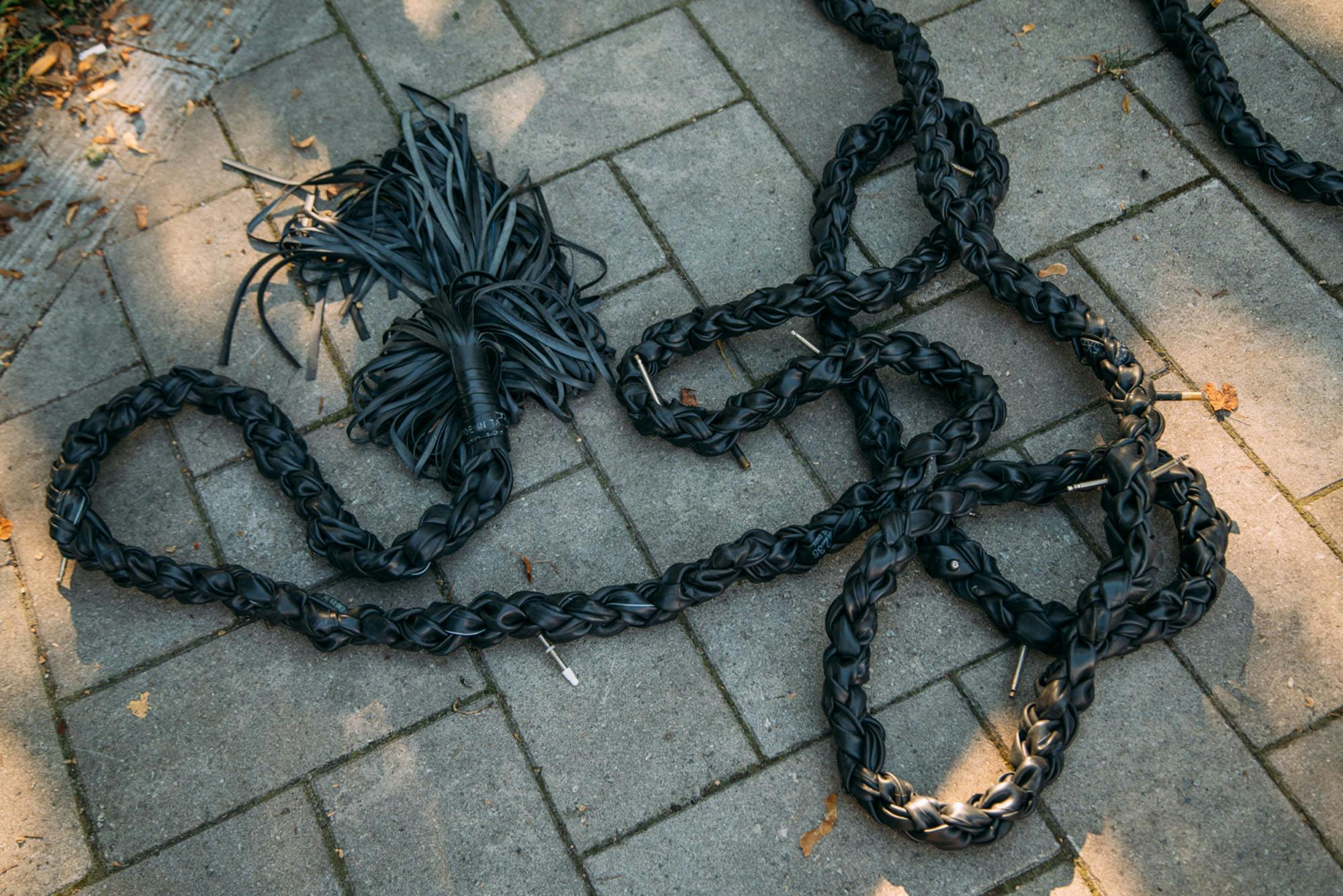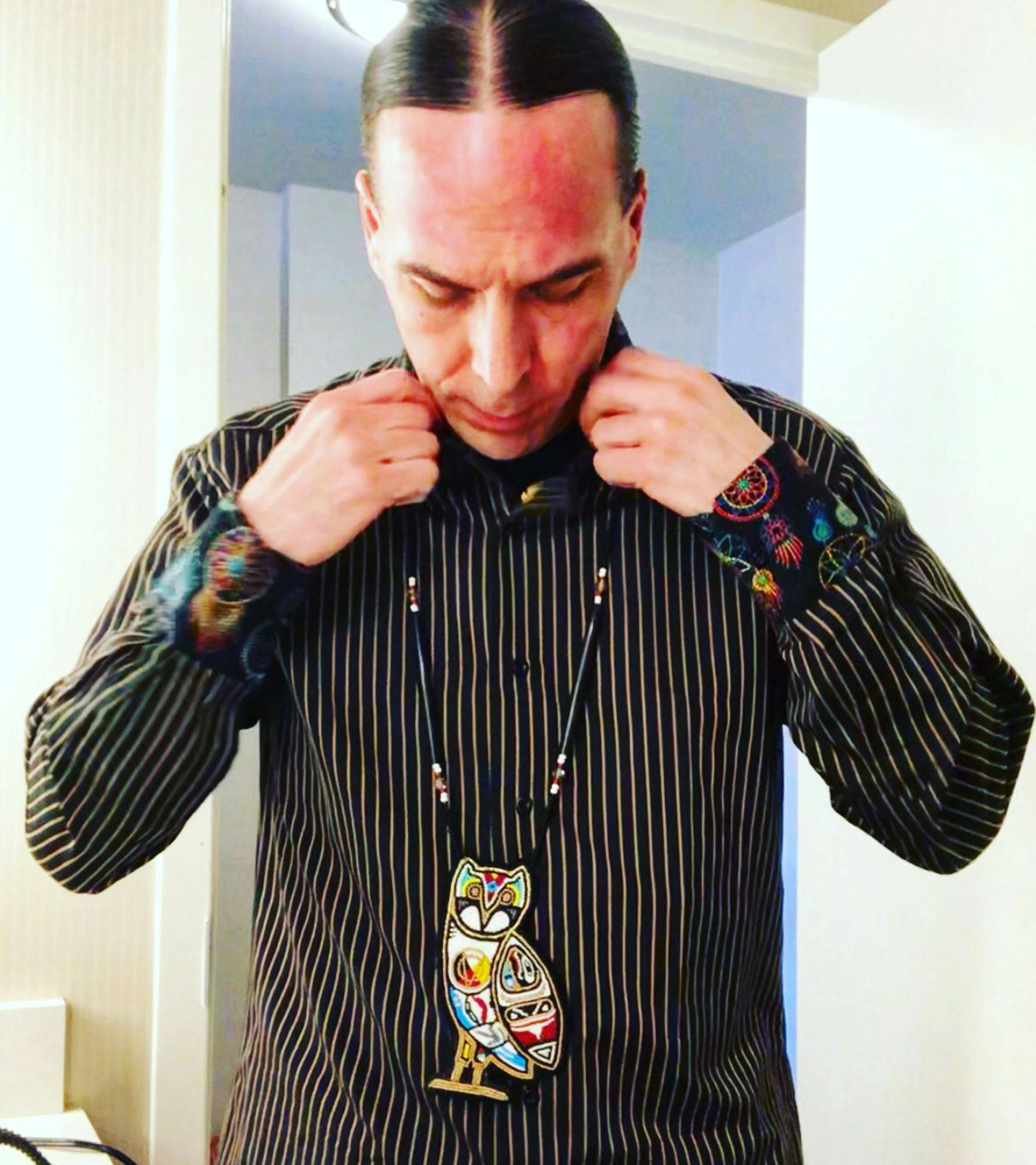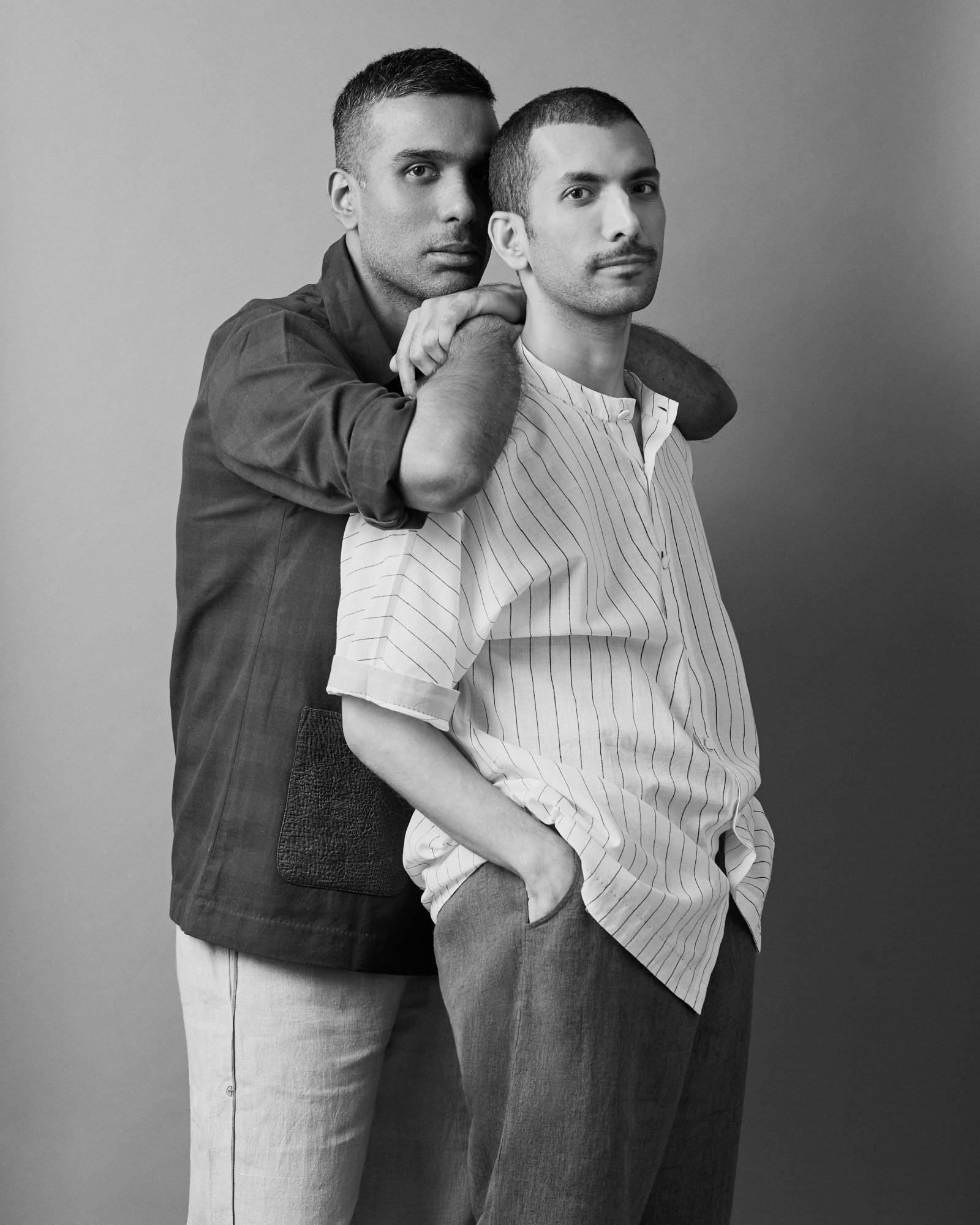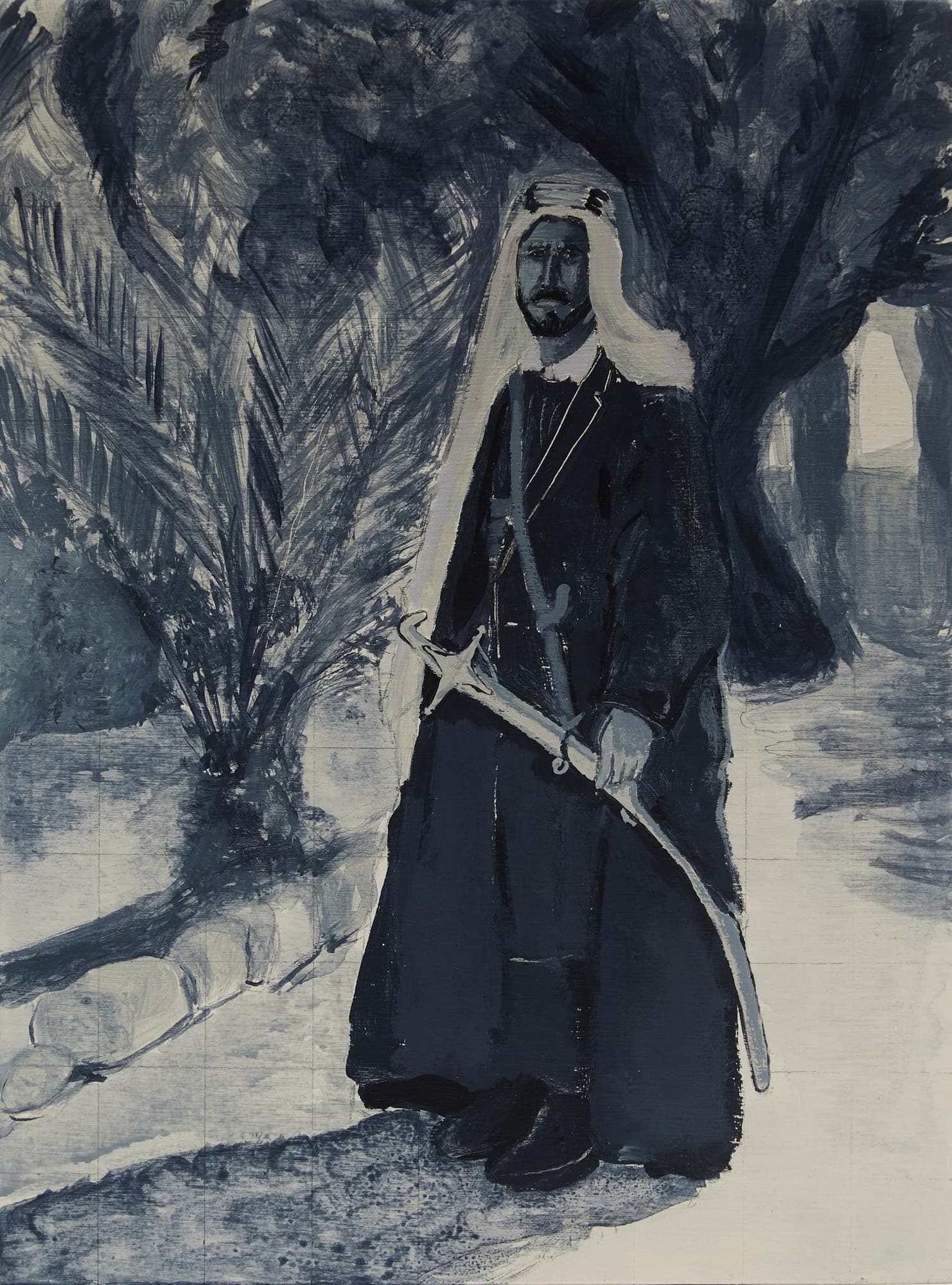Listen
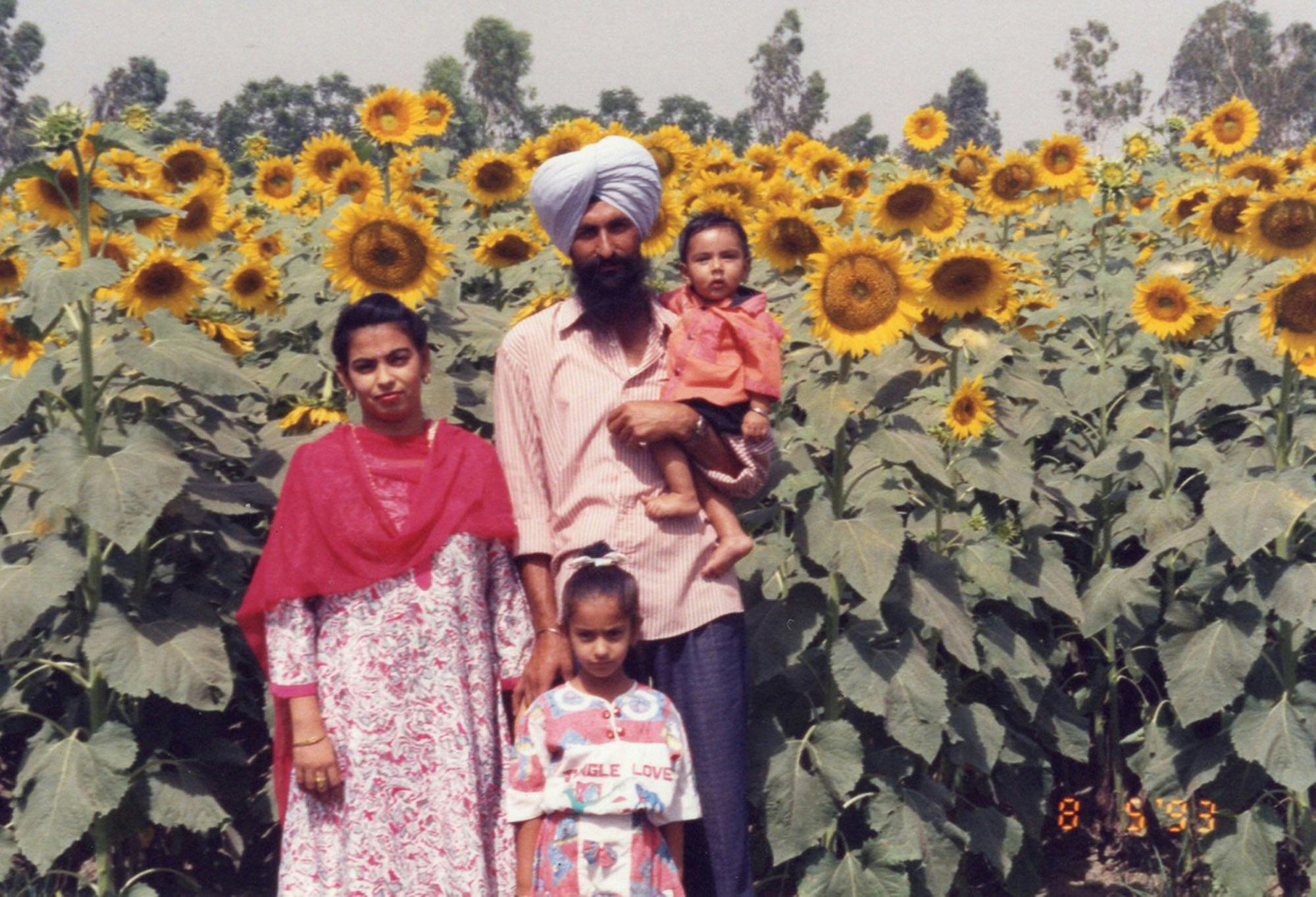
NOYZ
This is Amrit Singh, also known as Noyz. I’m a rapper and author from Brampton, Ontario. And at the end of 2019, I released my first book entitled “Keep Moving On: The Migration of a Punjabi Sikh Family.” In that book, I primarily talk about my family’s migration, highlighting my father’s story from Punjab, how he grew up, why he had to leave, and all the things that he saw while working on a cargo ship for several years traveling to over 40 countries, before eventually settling in Canada, primarily within the Peel Region within Brampton and Mississauga. Today is very special because I’m actually sitting here with my dad. We’re going to talk a little bit about the book and some of his stories while doing it through the idea of Migrant Erasure- in the ways that the institutions and the spaces around us actively erase us and our communities, but also the way that we sometimes actively erase ourselves to make ourselves smaller- as a way not to stand out, as a way to avoid violence, etc.
I’d like to introduce my dad, Mr. Satnam Singh. Dad, how are you?
SATNAM SINGH
I am doing well.
NOYZ
I know you don’t like talking about your personal story but I think it’s important to share. The way you used to live in the village with your family and how you immigrated here from Punjab. Can you speak to this and the responsibilities you had growing up in the village, with your family, and the farm.
SATNAM SINGH
The way we used to live back then, the entire village was like a big family. Our village was very small with around 300 to 400 people living there. Everybody knew one another. We all had close relations. There weren’t any shops in the village so if we ever needed anything, we would just ask and borrow from one another.
The city was far from where we were, and even with that, all the people came together to help one another. If you ever needed anything, they’d give it to you right away. Visitors and guests came over but they wouldn’t call announcing that they were coming over because we didn’t have phones back then. They would come all of a sudden, and sometimes we didn’t have enough food for them so we would borrow from the neighbours and they’d give it without any hesitation.
Whatever they had, they would give without expecting anything in return. Money didn’t matter as much as the relationship – that was more important. We all lived with love. Only local people stayed in the village. No one really moved out of it. They would stay here for all their lives. Because of this, we were even closer. Now, it’s a bit different…before, people wouldn’t lock their homes.
NOYZ
So back then, people would sleep with their doors unlocked?
SATNAM SINGH
Yes, they’d sleep soundly with the doors unlocked.
NOYZ
So Papa Ji, he used to work on the farm, did you ever work alongside him?
SATNAM SINGH
Yes, I did. I helped my dad. I used to go to school in the morning and I helped him in the evenings. Whatever he needed, I helped him first and then I did my homework. I’d ask him what help he needed and then after finishing it up, I would do my other school work.
The schools didn’t have any buses. It was around 2 kilometers away in the next village so we used to walk that distance to get there. All the kids would gather and we would walk over together. No buses, no cars, everybody walked. It was a simple life, very simple. We didn’t have any TVs, no phones, no overheads, no commodities. We were farmers in a village.
Whatever extra we had, we would sell that in the market and make a little money from that to survive. We didn’t have a daily income. Whenever the crops would grow- every six months or so- we would get paid.
Our overhead costs weren’t that much either – we didn’t have tractors but had oxes that we would plough the land with. Whenever we had a busy season, all the farmers would come together to help one another. We would tackle one farm at a time, together. The labour in the village was minimum wage or they would work for food.
Before, farming was very simple and after the 1960s, the Green Revolution came. Then fertilizers came, new kinds of seeds where the crops grew faster. Before we had wells to water the crops but because everything grew so fast, we needed to invest in water tubes. The natural wells didn’t have any costs to them but with these water tubes, you needed electricity for them to pump and function. More water was also needed. Everyone was happy that they were getting more crops but it also became more expensive.

NOYZ
When you were around 20 years old, you left Punjab for the first time. What sorts of things did you see? How did the farm industry change from back then to what it is now in India?
SATNAM SINGH
Both the expenses and crops grew. But again, we had no daily income. We only got paid once the crops were ready to be harvested. The labourers who worked daily would receive an income daily but the farmers would only get paid once the crops were harvested. We had to sell things like milk everyday to survive in the meantime.
NOYZ
Did you find any similarities between the Green Revolution and what is happening right now in India with the farmer’s protest? How our rights get taken away, and the new laws being instituted that does this – did you find any similarities with what’s happening now to the 60s and 70s?
SATNAM SINGH
At first, I didn’t think so. Back then, farmers didn’t have that much awareness about what was happening to us. They were simple people who had no schooling and worked to make a living. But the market was smaller back then too. Now, every day you have to spend to sustain. You now need pesticides, fertilizers, new seeds. They would just regrow the same seed before so we didn’t have to buy more. Now, for every crop you need to buy seeds to make them grow.
This increases the expenses. You need more water to grow these crops, you need more machines to grow crops which are very expensive. The expenses these farmers had grew, but they never received the real value of the goods they produce. Everyone would make their own price for things like fertilizers, seeds, without knowing the full context. They would set a price and everyone had to adhere to it because they had no other option. But the farmer couldn’t decide what the price of their own crop was. With these new rules that fixed the prices of these crops, the involvement of farmers wasn’t present. Had they been involved, the pricing would have been done more fairly.
Nobody cares about the farmer. They had more expenses so their income should have matched that but that wasn’t the case. They were doing the hard work but with every passing day, they were becoming poorer. There is no reward. They had to take out loans but could not pay them back but they had to do this to survive. Farmer life is too hard to live. No one from the government cared to think about this. Every government promised “yes, we will care,” but nobody did anything.




NOYZ
When you first decided to leave Punjab to go out and work, how did you decide that in your mind and heart?
SATNAM SINGH
People went to England and some would come back and let us know that you can make x amount of money abroad. They told us how the income there is more because you have to work hard but the rewards are also great, too. After learning about that, I thought that maybe I should give it a try.
NOYZ
What sorts of work did they do in England?
SATNAM SINGH
Some worked on farms, others worked at factories. It was mainly labour based. They weren’t too educated back then so they took whatever work they found. But they were all very hard workers. They’d work and send whatever they could save back to their families in India. Back home, they’d use that money to buy more land to farm, or invest it somewhere. Their family condition was much better with this additional revenue. Because of this, they all would think to send one of their kids internationally while the other helped around the farm.
NOYZ
Yes, that makes sense. Did you have any fears or any doubt in your mind when you decided to leave Punjab all alone for the first time?
SATNAM SINGH
Yes, of course. I was afraid but what else would I do? I didn’t have much choice. Where to go, what to do – I had no idea.
NOYZ
You said that the people would go to England and work at factories or farms. How did you decide to work on a ship instead?
SATNAM SINGH
To go to England, it wasn’t an easy option. A lot of people go to Greece and find work there too. So from listening to these stories, I thought that I should try. And just like that, I did.
NOYZ
How did you save money, figure out the paperwork, all the things that needed to be figured out? How did you do that?
SATNAM SINGH
You didn’t really need a lot of money back then to do these admin costs. You saw whatever the closest country to India was and just went. I went to Afghanistan first, and then by road we travelled to get to Europe. You just needed a passport and a visa to a country and off you went.
NOYZ
From Afghanistan, you went to Iran…

SATNAM SINGH
And then Turkey as you travelled on. It was hard to get to Greece because of all the islands. I tried the ship work there for the first time. I met a friend who was working on the ship at the time. That ship needed some additional crew help and they hired me and 3 others.
NOYZ
To work on the ship in Greece, you all travelled together from Afghanistan.
SATNAM SINGH
We travelled by bus, by train, by boat. There was no road from Italy and Malta so we had to use boats to get to Greece.
NOYZ
So what happened to those people who you travelled with? Why did they leave India?
SATNAM SINGH
Everyone was in the same situation. They had the same purpose.
NOYZ
Kind of like desperation, they had to leave because they needed money and had to take care of their family. Were they also farmers?
SATNAM SINGH
Yes, mostly they all did farming before.
NOYZ
When you used to work on the ship, did you ever feel like you were doing more work? Or did you feel like you belonged here?
SATNAM SINGH
There are challenges we all face, it’s hard work but it’s not like we had a choice. It was our home and families we had to take care of by any means. There is no other choice, only work is the choice. By doing hard work you’d create little income, that’s the only way you’d survive.



NOYZ
Was there a lot of fear when you were working- that you may not have the proper visa or documents to be working?
SATNAM SINGH
No, not personally. You had to take the right visa to travel and work. When I joined the ship, the ship’s company would arrange everything. Whatever country we had to travel to, they’d make sure we had the proper documents for all the crew. The way immigration and check-ins happen at the airport, the same would be happening at these ports also. They’d come on board the ship and check the documents and passports and then grant us permission to enter. They’d also stamp our passports to indicate this as well. I had no fear that I didn’t have the proper documentation because I was an employee of the ship’s company. We weren’t “illegal,” this was all legal.
NOYZ
I remember you telling us this one story in the book. You were travelling to Europe and I believe got to Iran and someone said you should cut your hair?
SATNAM SINGH
Yes, they said that if I kept my long hair that I wouldn’t find much work because we all looked like villagers. They recommended that we should all cut our hair.
NOYZ
What were you thinking when they said that?
SATNAM SINGH
I thought that I should keep my hair as is. But when you got there, there wasn’t any other option. They said that if you wanted to come with us, you had to cut your hair. We didn’t have money to turn back either. So we had no choice and because of this, most of us who had paghs, we all cut our hair short. I felt so bad after. For two-three days, I felt depressed and not hungry.
NOYZ
Yeah, I can imagine. Our heritage, our identity, you couldn’t wear anymore. How did you and the family back in the village stay in touch while you were outside of Punjab? How did you communicate with them?
SATNAM SINGH
Our communication was done through letters mostly. The ship’s head office was where these letters were sent to and since they knew where the ship was, they’d pass that along to us. Sometimes we wouldn’t get the letters for months at a time, we wouldn’t have contact with the family and had no idea where they were. It was hard – the village didn’t have any phones but you could telegram. There was no other way. In case of emergencies, telegrams would be the way to go.
NOYZ
What did you used to write in the letters that you’d send back to the village?
SATNAM SINGH
Mostly how I was doing, where I am and which place I just came from, how many days it took. I would just write that and send it back. That way they knew our current whereabouts and the futures, too.
NOYZ
You were young, 21-22, when you left and started working on the ship. The people who you worked with all spoke a different language. How did you deal with that?
SATNAM SINGH
We’d work long hours, everyone was from a different place and country, and because of that lifestyle you’d end up becoming friends slowly. And slowly, they’d start integrating your words and language into their vocabulary and as would you. This makes communication so much easier.
A lot of the people spoke Greek and didn’t know any English. You had to learn about each other and their language in order to communicate. It’s not in great detail that I could speak their language, but it was enough to get by.





NOYZ
When you got to Canada, here the weather is so extreme and different. The language and food here is so different, how did you adjust to it all?
SATNAM SINGH
From the work I did on the ship, it felt like I had seen almost half of the world. Where we had to go, you had to adopt their systems to live there. We can’t change those – you had to adopt these and make a life out of it. You have to change yourself since you cannot change the place.
NOYZ
What year did you get here to Canada?
SATNAM SINGH
I came in 1982, here.
NOYZ
Yes, and in 1982, was there a Punjabi community here?
SATNAM SINGH
There was something but it was small. People who wore the dastar (turban) came by not that often but Sikh’s who had cut their hair or Punjabis were present. After 1984, many people started wearing the dastar and the traditional garb. Before there were only a few people. After the events of 1984 many people realized that we need to represent our heritage and culture and wear it with pride.
NOYZ
For the book, I remember chatting uncle ji about coming to Toronto alone in the 1970s. He said the same thing about applying to work and people recommending that he cut his hair. Then after 84′ everyone started a case about discrimination about this?
SATNAM SINGH
Yes that’s right. We still had a lot of problem but they got smaller and smaller eventually. Yeah, I knew a bit of it here and there. I knew one aunty who taught English so with her help, it didn’t feel that hard to be in Canada. The language barrier wasn’t so problematic for me. But we got used to it as we settled here.
NOYZ
When you first came to Canada, did you have confidence when it came to speaking in English? Did you find there were any similarities with the new people and students who come here, who didn’t have a family or support here, they work long hours and study even harder – do you see your experiences here with this new generation?
Of course there are. Any person who is new, they don’t have a base here. You have to create your own income source, have to make your own home to live. To keep up with the expenses you have to do hard work and on top of being a student, you have to study, too. You have to work to create an income, too. Thier lives are really tough here. Not everyone has money backing them up that they bring from with them, you have to do what you do to survive. On top of that, the fees international students have to pay is so much, it’s almost triple to that of the domestic students. They need more income to pay this off. I think these students are only allowed to work 20 hrs on their visa.
Exactly, how much money can you even make while working only 20 hrs. It’s not possible.
SATNAM SINGH
It’s not possible, you are right. Some do cash only work to create an income. It’s hard – it’s a hard life for them.
NOYZ
They have no rights almost, they think that their voice doesn’t matter here. The things we want, to live a good, healthy life, they don’t have a community, they don’t have play in terms of sport. It’s hard.
SATNAM SINGH
They must get depressed. They can’t go back to their parents, it costs a lot of money to do that. Some don’t even have money, the parents take out a loan to send their kids here. There aren’t many options for them. That’s why they struggle and do this hard work and they manage somehow. In the hopes of getting a work visa to settle here. It takes a lot of hard work.
NOYZ
It sounds the same to me, like your story. Where you came out and felt like you didn’t have an option. You couldn’t go back. You have to go forward even if that’s not the best The safest or the best way to go but you kind of have to stick with it.
SATNAM SINGH
Yeah, it’s the same situation. You can’t go, you came here with the hope to study to make a better living and a future for you and your parents. They have no other option. It’s a lot of hard work. Maybe they don’t like but they have to do it.
NOYZ
When you came to Canada and lived here for 3-5 years, was it hard to try and sponsor the family to come here?
SATNAM SINGH
Yeah, that was a lot of hard work. You had to save money to do the paper work, and also have money for their accommodations and help them figure out their income source, too. You had to think about all of this. It was hard work but we had to do it.
NOYZ
Did you have someone give support in this entire process? To help you understand it? Or did you have to figure it out yourself?
SATNAM SINGH
There was no guide, with the situation at hand and your own work or life load, you’d take a look and figure it out.
NOYZ
What can we learn from looking at your history?
SATNAM SINGH
I think what you can take from looking at my life and history is that we will have to do hard work with integrity. You can’t make money the “wrong” way, that shouldn’t even be a thought that comes by. Hard work and following the rules and law is the only way. You should work within the laws that have been created, which protect us. You shouldn’t hurt anyone. You shouldn’t cheat someone. Live on your own income.
You shouldn’t compare yourself with others. You should take a look at your own pocket and see how much is there and live accordingly within those means. See what you can do and what you can afford without taking out any loans and or help. Slow and steady. I don’t know the ways to get rich quickly, everyone wants money to come in a hurry but that’s not everything. Honesty is needed. Helping those in need is necessary. People who get stuck for whatever reason, it is important that we help them. That’s what I am doing and how I am living my life.
NOYZ
It’s been forty (40) years since you’ve left home. All the money and resources you save up to send back, do you still do that?
SATNAM SINGH
Yeah, I send it to those who are in need of help – for themselves or their own family. But sometimes, the people who have a lot on their plate, I try to help them.
NOYZ
Yes, we cannot forget where we came from and the situations we had to deal with.
SATNAM SINGH
Some people have chances and others need help. Education is also very expensive, good schools cost money. Regular folks cannot afford it all with ease. Government schools don’t have great educators. There are so many problems. There are changes that need to happen. The government should think about the people first and not their own pockets. That way, we can all lead a good life.
Everything else is up to God. We should say God’s name day and night, he is with us everywhere we go. It doesn’t matter how far he is, he is watching us navigate the good and the bad. He sees when we do good, when we do bad – we don’t have to tell him, he knows it. He sits within us. There is not a moment where we are separated from him. There is no place nor time when this can happen. You should live your life knowing that God is with us.
NOYZ
I think that’s a good place to end it. Thank you for your time. Thank you for talking and explaining, sharing your life story.
SATNAM SINGH
Thank you. Thank you.




